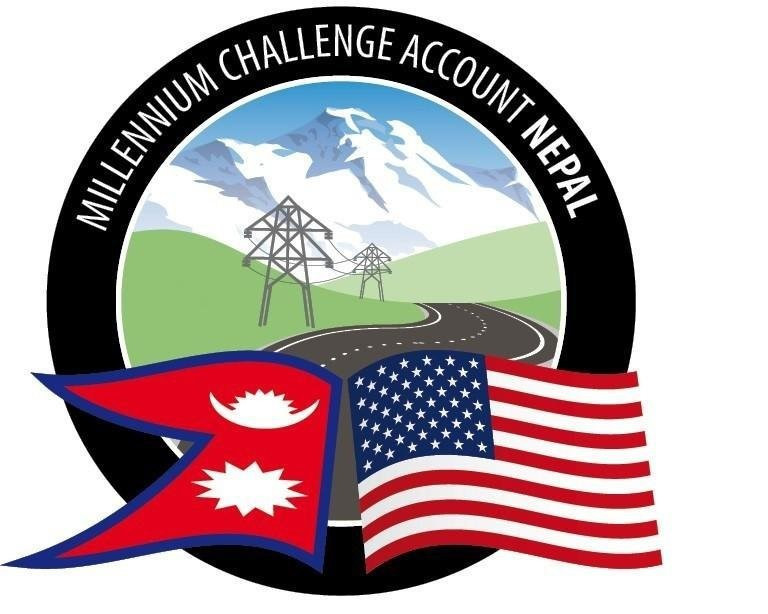Prime Minister (PM) Sher Bahadur Deuba has urged CPN (Maoist Center) Chairman Pushpa Kamal Dahal and CPN (Unified Socialist) Chairman Madhav Kumar Nepal to tell if any point in Millennium Challenge Corporation (MCC) Compact needs to be improved.
Dahal and Nepal told Deuba during their meeting at Baluwatar earlier on Wednesday that the MCC cannot be endorsed as it is. Deuba then told the coalition partners to provide what needs to be changed.
"PM asked what are the things in MCC that need to be improved. He has asked us to provide the things that have to be improved," Nepal said addressing a party program in Sindhupalchowk on Wednesday. "We talked about the MCC at Baluwatar today."
He reiterated that the ruling coalition will not fall apart.
He revealed that he also talked separately with Dahal, and Home Minister Bal Krishna Khand at his residence in Koteshwore Wednesday.
He claimed that CPN-UML Chairman KP Sharma Oli has been telling Deuba to pass the MCC as it is. "Oli seems to be saying that the MCC should be passed as it is and UML will support that," Nepal stated. "We will not adopt the wrong process. We want to maintain cordial relation with all the countries. We will not allow anyone to intervene in internal affairs of the country."
Vice President of the Department of Compact Operations Fatema Sumar during her Nepal visit in September 2021 had talked with Prime Minister (PM) Sher Bahadur Deuba and top leaders of all the major political parties about the MCC. She had expressed hope that Nepal will endorse the MCC in the press conference organized before returning home.
The MCC had replied to the government's queries ahead of her visit. Sumar sent answers to the queries through the American Embassy in Nepal addressing Finance Minister Janardan Sharma. She also sent the response in Nepali language for 'transparency and accessibility' and recommended that it be made public to ensure that all Nepalis know that it benefits the people.
"The MCC Nepal Compact is a continuation of our mutual friendship and underscores the Government of Nepal's commitment to democratic principles and building a better future for all Nepalis," she replied.
She pointed that in her previous visits to Nepal, she was overwhelmed by the request for, and positive support of, an MCC partnership - from business and community leaders to members from every political party. "Unfortunately, since my last visit, there has also been an increase of false and misleading statements about MCC. MCC has no hidden agenda."
The MCC replied that the Constitution of Nepal prevails over the MCC Compact, it is not related to any defense or military strategy pointing that the US law governing the MCC prohibits it from using funding for any military purpose, all the projects to be developed under the MCC have been selected by the Nepal government and parliamentary ratification has been required to make it international agreement as the Nepal government concluded that parliamentary ratification is required to make the compact an international agreement as per the prevailing Nepali laws.
It also clarified that it is not part of Indo-Pacific Strategy and just an agreement between the MCC and the partner government concerned and any decision by Nepal on Indo-Pacific Strategy will be separate and independent from the MCC.
The MCC has been stuck at the House for a long time. It was to enter the construction phase from June 30, 2020 after House endorsement as per the previous schedule but could not be passed as the then ruling CPN was bitterly divided over the issue.
But government officials have been insisting the MCC is still not dead pointing that nowhere is it written that the agreement will be revoked if it is not endorsed by the House by that date.
The then CPN, formed after unification of UML and CPN (Maoist Center), had hotly debated MCC even during the standing committee meeting in December 2019 with the erstwhile Maoists and those from Madhav Kumar Nepal faction of CPN-UML opposing it saying it should only be passed if it becomes clear that it is not part of the Indo-Pacific Strategy floated by America.
The US embassy in Kathmandu later issued a 10-point statement clarifying that the MCC is not part of military affairs.
The press statement, which it said was in response to a large number of queries from Nepali citizens, politicians, and members of the media about the MCC, claimed that every Nepali government since 2012 has been in favor of the MCC and that there is no military component to the compact.
The then CPN had even formed a task force to address the issue. The party formed the task force led by senior leader Jhala Nath Khanal and including the then foreign minister Pradeep Gyawali and standing committee member Bhim Rawal as members to study MCC to find out whether it is part of the American military strategy or not.
The task force recommended that it should not be endorsed without amendment. But Gyawali had put a 15-point dissenting opinion.

